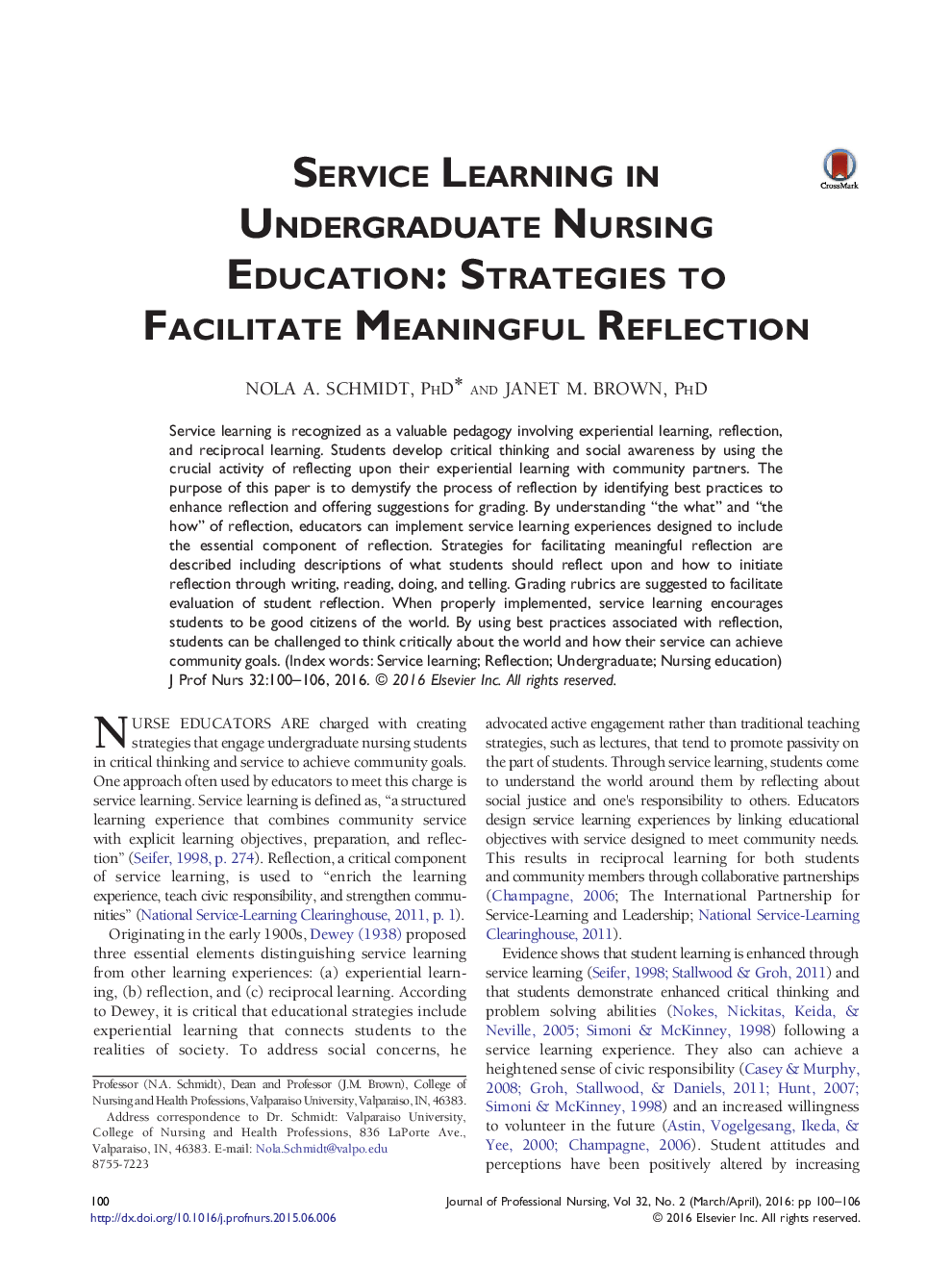| Article ID | Journal | Published Year | Pages | File Type |
|---|---|---|---|---|
| 2668143 | Journal of Professional Nursing | 2016 | 7 Pages |
•Reflection is a critical component of service learning.•Reflection challenges students to think critically about their experiences.•Use “the what” and “the how” to guide the selection of questions posed to students.•Use strategies involving reading, writing, doing, and telling.•Grading rubrics assist faculty to evaluate reflection by students.
Service learning is recognized as a valuable pedagogy involving experiential learning, reflection, and reciprocal learning. Students develop critical thinking and social awareness by using the crucial activity of reflecting upon their experiential learning with community partners. The purpose of this paper is to demystify the process of reflection by identifying best practices to enhance reflection and offering suggestions for grading. By understanding “the what” and “the how” of reflection, educators can implement service learning experiences designed to include the essential component of reflection. Strategies for facilitating meaningful reflection are described including descriptions of what students should reflect upon and how to initiate reflection through writing, reading, doing, and telling. Grading rubrics are suggested to facilitate evaluation of student reflection. When properly implemented, service learning encourages students to be good citizens of the world. By using best practices associated with reflection, students can be challenged to think critically about the world and how their service can achieve community goals.
